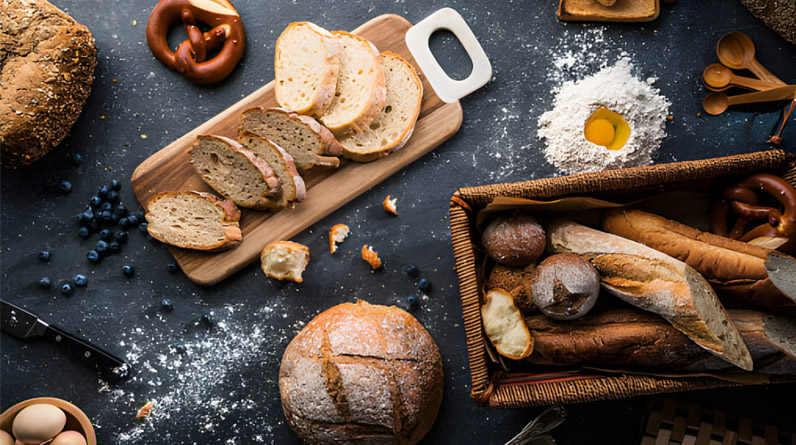There’s something almost counterintuitive about the relationship between runners and baking. While many athletes fixate on commercial sports drinks and engineered gels, a growing community of distance runners has discovered that homemade baked goods represent some of the most effective—and satisfying—fuel options available. The rise of homemade energy bars, oatmeal cookies, and banana-based snacks in the running community isn’t a passing trend; it’s a fundamental shift in how athletes approach nutrition.
Whether you’re logging 20 miles a week or training for your first 5K, understanding why runners embrace baking for fuel can transform how you approach pre-run, mid-run, and post-run nutrition. This article explores the science, practical benefits, and real-world strategies that make homemade baked goods an indispensable part of a runner’s nutritional toolkit.
The Perfect Fuel Source: Why Runners Need Energy-Dense Snacks
Running depletes your body’s energy stores rapidly. A single 60-minute run burns hundreds of calories, and your muscles depend on consistent glycogen replenishment throughout the day to maintain performance and prevent injury. According to sports nutrition research from 2024, runners who fail to fuel adequately face increased fatigue during workouts, compromised recovery, and higher injury risk.
The challenge isn’t simply eating more—it’s timing and digestibility. Your stomach can only handle so much volume at once. This is where energy-dense foods become critical. Emily Edison, owner of Momentum Nutrition, explains that energy-dense foods “allow us to meet the energy demands of sport without overfilling our stomachs, which can cause discomfort.” When training volume is high, energy needs increase proportionally, making conventional whole foods sometimes impractical.
Why Homemade Baked Goods Win Over Store-Bought Options
Commercial energy bars and gels dominate the sports nutrition aisle for a reason: convenience. But homemade baked snacks offer advantages that manufactured products simply can’t match.
Control over ingredients sits at the top of the list. When you bake your own energy bars or oatmeal cookies, you know exactly what goes into every bite. No artificial preservatives, no mystery ingredients, no surprises on the digestive front. Many runners report stomach issues with commercial gels and bars—a problem that vanishes with whole-food alternatives they prepare themselves.
Superior taste and satisfaction matter more than many athletes realize. Eating the same energy gel flavoring on a 90-minute run creates flavor fatigue. Homemade options let you rotate between peanut butter banana bars, oatmeal-cranberry cookies, and date-walnut squares, keeping your palate engaged and your mind less focused on the miles ahead.
Cost efficiency gives homemade options a significant advantage. A single commercial energy bar costs $2-4, while homemade versions cost pennies per serving. For runners preparing for a marathon or training through a heavy season, this difference adds up fast.
Whole food nutrition that commercial products struggle to replicate. When you bake with rolled oats, natural nut butters, dried fruit, and eggs, you’re working with foods your digestive system recognizes and processes efficiently. Research from Runner’s World’s 2025 Sports Nutrition Awards confirms that athletes increasingly prefer whole-food options over engineered supplements when real food proves practical.
The Nutritional Science Behind Baked Energy Snacks
Understanding the macronutrient balance that makes baked snacks effective helps you create—or select—options aligned with your training goals.
Carbohydrates: Your Body’s Preferred Fuel
Carbohydrates remain the primary fuel source during running. Your muscles store carbohydrates as glycogen, and this reserve depletes based on your run’s intensity and duration. Baked goods naturally excel at delivering carbohydrates in a form your body readily absorbs. Rolled oats provide complex carbohydrates that sustain energy over time, while dried fruit and honey offer simple sugars for quick glycogen replenishment during or immediately after runs.
A balanced pre-run snack typically provides 200-300 calories with a strong carbohydrate foundation, according to sports nutrition standards for 2024. A homemade oatmeal cookie bar delivers approximately 45-50 grams of carbohydrates in a portion most runners can comfortably digest.
Protein: Recovery and Muscle Repair
While carbohydrates fuel your running, protein rebuilds the muscle damage that occurs during training. Eggs, another natural baking ingredient, contain all essential amino acids your body needs for muscle synthesis. Nut butters add additional protein plus healthy fats that slow digestion and promote satiety.
Sports nutritionists recommend consuming 20-30 grams of protein every 3-4 hours as part of your overall nutrition strategy. Homemade baked goods incorporating eggs, nuts, and seeds easily meet this target while maintaining digestibility.
Fats: Satiety and Vitamin Absorption
Fat has been unfairly demonized in sports nutrition. Quality fats—from nuts, seeds, and coconut oil—support vitamin absorption and promote the feeling of fullness that keeps hunger at bay between workouts. A balanced baked snack includes fat as part of the macro triad, not as something to eliminate.
Pre-Run, During-Run, and Post-Run Baked Options
The timing of your snack relative to your run determines which baked options work best.
Pre-Run Baked Snacks (1-3 Hours Before)
Pre-run nutrition should be easily digestible while providing sustained energy. Banana bread, rice cakes with nut butter, or light oatmeal bars work exceptionally well here. The goal is fueling without causing stomach distress during your run.
Example: A slice of whole-grain banana bread with cinnamon provides carbohydrates for immediate energy plus enough healthy fat to prevent blood sugar crashes. Runners typically consume this 1-2 hours before starting their workout.
During-Run Nutrition (Runs Over 60-90 Minutes)
For longer distances, mid-run fuel becomes essential. While gels and sports drinks dominate here, some runners successfully use dried fruit-heavy baked bars or energy bites. According to Mayo Clinic guidance updated in 2025, runners should aim for 30-60 grams of carbohydrates per hour during runs exceeding 90 minutes. Homemade options can deliver this if you’ve tested them during training.
No-bake oatmeal bars with dates and peanut butter travel exceptionally well and provide quick-absorbing carbohydrates without the heaviness of traditional baked goods.
Post-Run Recovery (Within 60 Minutes)
Recovery nutrition is where homemade baked goods truly shine. Your muscles are primed to absorb carbohydrates and protein during this 30-60 minute window. A homemade peanut butter oatmeal cookie bar with a glass of chocolate milk creates an ideal recovery combination that costs a fraction of commercial recovery drinks.
Sports nutritionists recommend a 3:1 or 4:1 carbohydrate-to-protein ratio for recovery. Homemade options easily achieve this balance while providing flavors you actually crave after a hard effort.
Popular Runner-Approved Baked Recipes
No-Bake Oatmeal Energy Bars (Most Popular)
These bars require just 15 minutes and no oven, making them perfect for busy runners. The recipe combines rolled oats, peanut butter, dates, and honey in a food processor, pressed into a pan, then refrigerated. Many runners prepare a batch Sunday evening for the entire week.
Nutrition per bar (approximately): 200-250 calories, 8-10g protein, 30-35g carbohydrates, 8-10g fat. The natural sweetness from dates eliminates the need for added sugar, a significant advantage over many commercial bars.
Whole-Grain Banana Bread
A staple in runner kitchens, homemade banana bread delivers quickly digestible carbohydrates plus the potassium runners lose through sweat. One slice provides approximately 200 calories with balanced macronutrients suitable for pre-run fueling.
The beauty of homemade banana bread is customization. Add walnuts for omega-3 fatty acids, blend in chocolate chips for mental satisfaction, or incorporate ground flaxseed for additional fiber and nutrition.
Peanut Butter Oatmeal Cookie Bars
These baked bars (not no-bake) offer a heartier texture and more traditional cookie experience. A single bar typically provides 300-350 calories with 8-10 grams of protein, suitable for post-run recovery or sustained pre-run fueling. They freeze exceptionally well, allowing runners to prepare a month’s worth at once.
Practical Tips for Runner Bakers
Batch Preparation and Storage
Most homemade energy bars store well for 5-7 days in an airtight container at room temperature, or up to 3 months frozen. Dedicating a Sunday afternoon to preparing 3-4 batches ensures you always have fuel available when needed. Many runners freeze bars individually, grabbing one as they head out the door.
Preventing Common Baking Mistakes
Overbaking creates hard, dry bars unsuitable for runners requiring easy digestion. Remove bars from the oven when the edges are set but the center slightly soft. This approach yields chewy, moist bars that digest smoothly during or after runs.
Using quick oats instead of old-fashioned rolled oats results in denser bars with less defined texture. Most runner-focused recipes specifically call for rolled oats to achieve the ideal consistency.
Customization for Individual Needs
Every runner’s digestive system differs. What works brilliantly for one athlete creates issues for another. This is why homemade options excel—you can adjust ingredients based on personal tolerance. Sensitive stomachs? Reduce fat content and omit nuts. Craving additional protein? Add eggs or protein powder.
Why The Homemade Advantage Matters
The global healthy snack market reached $93.4 billion in 2024 according to market analysis, with consumers increasingly seeking convenience paired with ingredient transparency. Runners represent this trend’s vanguard, recognizing that the best fuel doesn’t come from the most aggressive marketing campaign but from their own kitchen.
Recent running trends show that 82% of healthy snack consumers value energizing properties, while 91% prioritize convenience. Homemade baked goods deliver both simultaneously. They’re inherently energizing due to whole-food ingredients, and freezer-ready batches make convenience effortless.
There’s also an intangible psychological benefit. Fueling your training with something you prepared yourself creates a deeper connection to your running. You’re not just consuming nutrition; you’re honoring the effort you invest in your training by carefully preparing fuel that supports your goals.
Building Your Homemade Fuel Strategy
Starting a runner’s baking practice requires minimal equipment—a mixing bowl, measuring cups, a baking sheet, and an oven. Begin with no-bake options to understand how different ingredients affect the final product. Oatmeal bars with dates and peanut butter provide an excellent starting point, requiring only a food processor and refrigerator time.
Once comfortable, expand to traditional baked goods. This progression helps you identify which recipes align with your digestive system, training intensity, and flavor preferences. Within a few weeks, you’ll have a personalized collection of snacks tailored specifically to your running needs.
Track how different baked options affect your performance. Does the banana bread give you steady energy throughout a run, or does it cause stomach issues? Does the peanut butter density slow you down, or does the sustained release feel perfect for long efforts? Your body provides immediate feedback that helps refine your personal nutrition strategy.
Conclusion: The Runner’s Kitchen Connection
Runners love baking not because they’re chasing Instagram aesthetics or trying to be trendy. They bake because whole-food energy snacks deliver measurable performance benefits while offering control, satisfaction, and cost efficiency that commercial products simply cannot match.
The connection between running and baking represents something deeper: a commitment to understanding and honoring your body’s fuel needs. When you prepare your own energy snacks, you’re making a deliberate choice to fuel intelligently, recover effectively, and support your training with genuine nutrition rather than marketing promises.
Your next long run doesn’t require the latest engineered gel or premium sports bar. It requires the homemade oatmeal cookie bars sitting in your freezer, prepared with whole oats, real peanut butter, and dates that your body recognizes and efficiently converts to energy. That’s why runners love baking—because it works.









